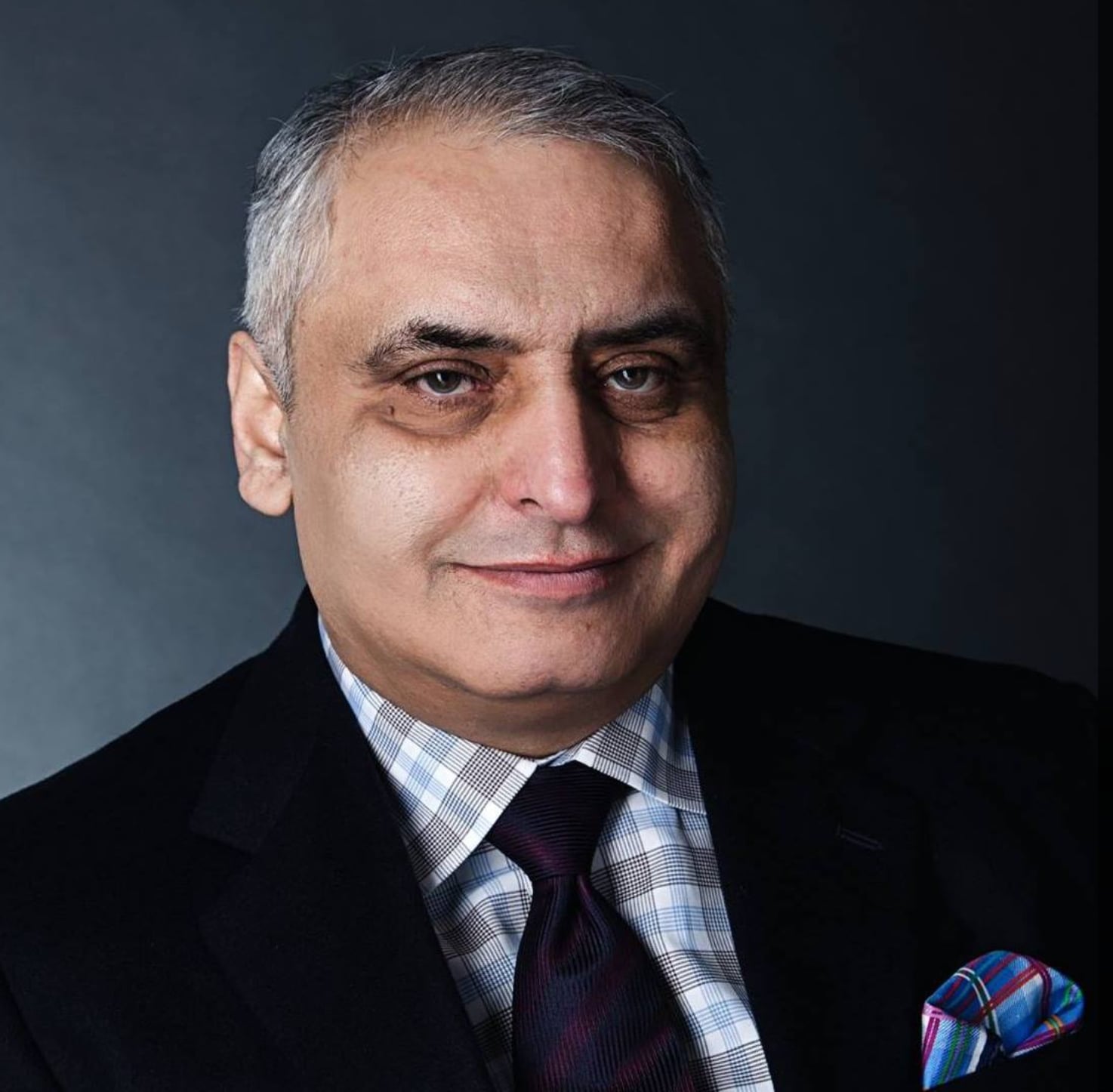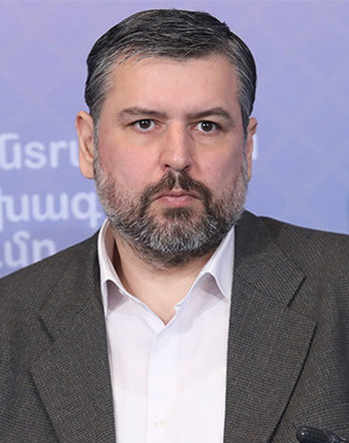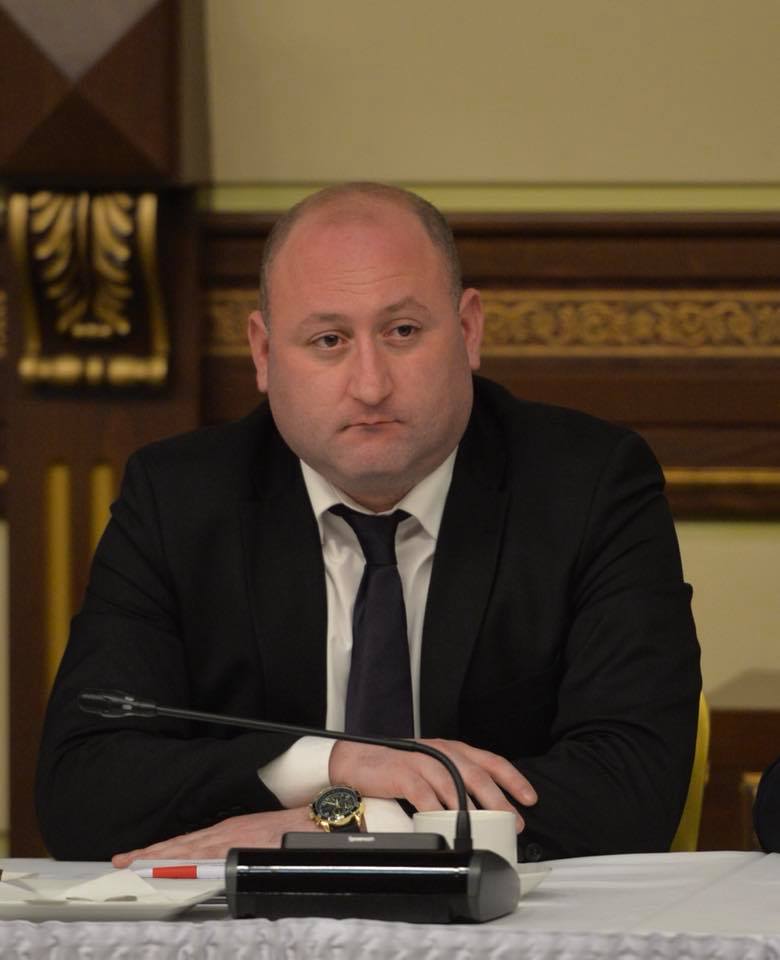Azerbaijani Aggression: Facts and Analysis | Nancy Pelosi | Ep 165 - Sep 18, 2022 [EP165]
Posted on Monday, Sep 19, 2022 | Series: WIR
Guests:
Topics:
- Azerbaijani Aggression
- Russia and CSTO
- UN & International Reaction
- War Communications (with Karen Vrtanesyan)
- Nancy Pelosi’s Visit (with Suren Sargsyan)
Episode 165 | Recorded: Sunday, September 18, 2022
Show Notes
Azerbaijani Aggression
On the morning of September 13, 2022, shortly past midnight, Azerbaijani armed forces began a full-scale offensive against the entire border between three Armenian marzes (Gegharkunik, Vayots Dzor, and Syunik). The intensity of the fighting was equivalent to that of the 44-day war with Azerbaijan.
As of Saturday, September 17, there are at least 135 deaths on the Armenian side, while Azerbaijan claims 79 dead. The attack was accompanied with war crimes including attacking civilian areas, killing of civilians, as well as horrendous rape and mutilation of female Armenian service members, all broadcast on the internet by Azerbaijani forces for the world to see.
Additionally on the Armenian side, there are 7 official POWs (prominent human rights lawyer, Siranush Sahakian, claims more than 20), hundreds of wounded. There are about 200 damaged or destroyed homes and more than 7600 residents have been evacuated from towns and villages near the fighting, which include Kapan, Jermuk, Martuni, and Sotk.
The Azerbaijani forces have also gained territory. In Jermuk, the enemy has broken through 7.5 km deep and 8.5km wide. Azerbaijani troops are now 4.5km from Jermuk.
Since September 16 there is a humanitarian case-fire in place which seems to be holding at the time of this recording. But Armenian officials have also accused Azerbaijan of preparing to attack Armenia from Nakhijevan in order to forcefully punch a corridor through Armenia’s south.
- What is your observation of what took place? In your assessment, what is Azerbaijan’s goal and was Armenia taken by surprise by this invasion?
Notes:
- Lead up of propaganda for more than a week
- All analysts expected that full scale violence was imminent
- DM was in the US
- Armenia didn’t provide any warnings to citizens
Despite this being day #5 since the attacks began, there has been no declaration of martial law and no mobilization of forces. Prime minister Pashinyan said he doesn’t see the need to declare martial law or mobilization at this time, meanwhile Alen Simonyan, president of the national assembly said that instituting martial law could be a sign of aggression!!!
- Azerbaijan has now seriously extended its encroachment into more Armenian territory. What is the Armenian government waiting for? Why not at least begin mobilization given that it takes time to train called up fighters?
Russia-CSTO
Aggression or Provocation?
In the aftermath of the attack, Armenia has appealed to international organizations such as the United Nations, the Collective Security Treaty Organization (CSTO). It has also applied to Russia based on the bilateral security treaty between the two countries.
The UN Definition of aggression of “aggression” is clear. However, at least during the initial 3 days of the conflict, before the ceasefire was reached, Armenian authorities explicitly avoided the term “aggression”. In the national assembly, on the day of the attack, the opposition’s offer to explicitly use the term aggression in a resolution condemning the attack, was rejected by the Civil Contract majority. Only during the second UN Security Council meeting on the 4th day, as a ceasefire was to start taking effect, did the Armenian representative use that term.
Article 4 of the CSTO treaty explicitly uses the word “aggression” against a member state as a trigger. Overnight it was known that there were over 105 killed.
- Why didn’t the Armenian side use the term aggression on the first day?
CSTO Response
As we know, the CSTO sent a fact-finding team to the region this week. Meanwhile, Stanislav Zas, CSTO General Secretary, is scheduled to arrive in the following week.
But even before the arrival of the team, Russian officials said that sending military aid to Armenia was not discussed.
To quote Sidorov (head of the CSTO headquarters): “Therefore the CSTO’s military involvement was not discussed on September 13, nor yesterday, nor today, and, I think, it won’t be discussed in the near future.”
- Do we know if Armenia invoked Article 4, requiring military aid, or Article 2 which simply calls for consultation?
- How can we explain the inaction of the CSTO?
In light of CSTO non-action, there have been increasingly strong public rebukes from Armenian officials. Armen Grigoryan, national security council, said that Armenia expected more from the CSTO and in a veiled threat of leaving the organization said that “Armenia had nothing to think about, it is the CSTO who should think about what to do”.
Meanwhile, certain media, usually funded by Western sources, have increased coverage of the thesis that Armenia should leave the CSTO. There was even a small protest held on Saturday calling for Armenia’s withdrawal from the organization.
But caught between a Russia at war and a hard place, should Armenia curb its expectations from the organization? Could Armenia’s own actions over the past years have helped or harmed the relationship with CSTO members sufficiently to have an effect on the outcome we’re seeing today?
- What is Armenia’s proper response to CSTO?
In a region like Armenia’s, security alliances are a must and much of our national security strategy has been built upon the foundations of CSTO membership.
- Should we even be members of an alliance which multiple times now has declined to help Armenia?
Note of course, that leaving the CSTO could open the way for Azerbaijan joining the group and cause more harm to Armenia.
Russia
In addition to criticizing the CSTO, Armenian officials have not been shy of public spats with Russia. We should recall that Armenia’s relations with Russia are at such a state, that Armenia’s strategic ally had recently sent a diplomatic note of protest accusing Armenia of tolerating anti-Russian propaganda.
In addition to the CSTO, Armenia also has applied to Russia as we mentioned earlier.
- What has the official response of Russia (not as part of the CSTO but Russia itself) been to Armenia’s request?
- Will this request also have the same fate as the CSTO one?
After the hearings in the UN Security Council, Armenia praised the response of members in general except isolating “one member”, alluding to Russia but without naming it, saying that Armenia expected more.
Alen Simonyan in an interview also indirectly blamed Armenia’s geo-political troubles on Russia, linking the war in Artsakh to what took place in Syria and Ukraine.
Russia also didn’t attend a visit to the regions where there is conflict organized by the Armenian government for foreign embassies.
- As an experienced negotiator. Is this type of public complaining the right strategy?
- What is causing the Armenia-Russia relationship to turn so sour and what could Armenia have done better?
UN and International Reaction
UN Reaction
Following the aggression, Armenia also took its case to international partners including requesting a hearing at the UN Security Council. In fact, there were 2 meetings, one on September 13, the day of the attack, which was closed and another one on September 15 which was open.
There is no press about the outcome of the closed meeting, however, the meeting on Sep 15 was broadcast live and we had a chance to directly hear the reactions of different members of the UNSC.
Generally, there was significant support from UNSC members. For instance:
- India called Azerbaijan “aggressor”
- The US called on Aliyev to ‘cease the hostilities’ and ‘disengage military forces’ and underscored that the fighting was happening inside Armenia. In a separate public announcement, the US sent condolences for Armenian deaths.
- France asked Azerbaijan to withdraw to initial positions.
Meanwhile Russia’s reaction was uncharacteristically mild and bothsidist. This led Ararat Mirzoyan to say that Armenia is expecting more from a certain country - alluding to Russia.
In the end, there was no resolution and nothing but words it seems.
- How would you evaluate Armenia’s bringing up the issue to the UNSC? Could it have gotten more from its international partners?
Iran
This week in Samarkand at the Shanghai Cooperation Council, Iran’s president Ebrahim Raisi also commented on Azerbaijan’s invasion, saying that “any change in the recognized borders of Azerbaijan and Armenia should be rejected”. This has been a frequent and consistent message from the military-political leadership of Iran, including Ayatollah Khamenei.
- How significant is the Iran factor in this? Is there any way for Armenia to derive security benefits or guarantees from Iran’s position?
In general, there is a global shortage of arms and ammunition due to the war, but there are reports that Armenia’s southern neighbor Iran has offered Armenia weaponry multiple times in the past. If Armenia were to purchase weapons from Iran, it would also greatly simplify the logistics of delivery albeit expose Armenia to risks from US sanctions.
- What is the prospect of Armenia acquiring weapons from Iran?
Karen Vrtanesyan on Azerbaijani Aggression
Guest: Karen Vrtanesyan, recorded separately.
Karen, we’re talking on Sunday, Sep 18, 2022. Close to 6 days have passed since the beginning of this new Azerbaijani offensive.
- What is Azerbaijan’s goal and was Armenia taken by surprise by this invasion?
The chief of general staff Edward Asryan explained to the media that the Azeri incursion in Jermuk is over-extended and claimed the enemy is surrounded. Furthermore, he expressed assurance that within a few days as their supplies run out, they will be forced to retreat. Meanwhile, Alen Simonyan talked about a few “sabotage groups” who are being hunted down.
- Are they talking about the same group?
- How would you assess Armenia’s strategic and tactical military communication with the public and the press in the wake of this attack?
In this latest attack we have over 135 martyrs. We are hearing reports that they are being buried quietly, perhaps 10 per day, without much fanfare. Taking pictures or video in Yerablur is restricted.
- Why not conduct a full honor guard ceremony for these soldiers, even Azerbaijan does this? After all, we are already hearing of cases of heroic fighting and resistance. What is the strategy that Armenia is pursuing in not publicizing these funerals?
This week, Armenia seemed to even blame Russia for lack of weapons. Alen Simonyan, president of the National Assembly, in an interview on H1, said that what Armenia needs most now is weapons and they’re having trouble getting them from one direction (again alluding to Russia without naming it explicitly).
- How do you explain this complaint about having trouble acquiring weapons?
Suren Sargsyan on Nancy Pelosi Visit
A high-profile US congressional delegation of Democratic representatives visited Armenia over the weekend. The delegation was led by Nancy Pelosi, Speaker of the House. Accompanying Pelosi were Representatives Frank Pallone (D-NJ), Anna Eshoo (D-CA), and Jackie Spier (D-CA). All four representatives are staunch friends of the Armenian community in the US.
The visit generated media coverage, including some emotional scenes with Pelosi in Tsitsernakaberd, the Armenian Genocide Memorial.
- What will this visit bring to US - Armenia relations?
- Is there potential to cooperate in the military sphere?
- How was Pelosi’s visit perceived in Tehran and Moscow?
Wrap-up
We hope you found our Week in Review helpful. We invite your feedback and your suggestions. You can find us on most social media and podcast platforms. Thanks to Laura Osborn for the music on our podcasts.
Guests

Arthur G. Martirosyan
Arthur G. Martirosyan is a Senior Consultant with CM Partners. In 1994, after graduating from Yale University, he joined Conflict Management Group and Harvard Negotiation Project, and has since worked on conflicts in the former Soviet Union, the Middle East, the Balkans, Africa, and Latin America.

Karen Vrtanesyan
Karen Vrtanesyan is an expert on military and warfare strategies with a focus on Armenia and its neighboring region. He is the former coordinator of the website razm.info.

Suren Sargsyan
Suren Sargsyan is the founder and President at the Armenian Center for American Studies, a research center based in Yerevan.
Hosts

Hovik Manucharyan
Hovik Manucharyan is an information security engineer who moved from Seattle to Armenia in 2022. He co-founded the ANN/Groong podcast in 2020 and has been a contributor to Groong News since the late 1990s.
Disclaimer: The views expressed by Hovik Manucharyan on the ANN/Groong podcast are his own and do not necessarily reflect the opinions of his employer or any other organization.

Asbed Bedrossian
Asbed Bedrossian is an IT professional, and for years oversaw the central IT enterprise infrastructure and services at USC. His decades of experience spanned across IT strategy, enterprise architecture, infrastructure, cybersecurity, enterprise applications, data center operations, high performance computing, ITSM, ITPM, and more.
Asbed founded the Armenian News Network Groong circa 1989/1990, and co-founded the ANN/Groong podcast in 2020.